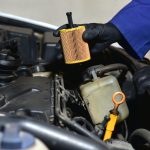The Lagos state government has warned intra-state commercial drivers not to increase transportation fares, following its newly imposed Harmonized daily levy of N800 to be paid to the government.
The state’s Commissioner for Information and Strategy, Mr Gbenga omotoso, said the payment of the levy which would commence by 1st of February, would reduce their burden rather than add to it, as they will stop paying multiple fees to agencies and local government authorities.
It could be recalled that the state and local governments, as well as transportation unions and other relevant stakeholders in the state’s transport sector, signed an agreement on Tuesday to harmonise dues collected by the government from commercial motorists at parks and garages across the state.
The N800 harmonised levy is said to cover the local government levy, charges paid to the Ministry of Transportation, the Lagos State Waste Management Authority for clearing waste from motor parks, and the Lagos State Environmental Protection Agency, as explained by the Commissioner for Finance, Dr. Rabiu Olowo.
He explained that the strategy was part of an effort to restructure the transportation system and increase government revenue, noting that the N800 levy would be reduced by the drivers’ personal income taxes.
However, Alhaji Musiliu Ayinde, aka Oluomo, the state chairman of the National Union Road of Transport Workers, stated on Tuesday, that the levy would not prevent drivers from paying their usual dues to the union.
Consequently, this new development arose fears of an impending fare increase, among members of the public who believed they would be on the receiving end of the levy.
In an interview with Autojosh, Mr Omomtoso said “What we are doing is to ensure that drivers and passengers are protected. If the driver takes up from Badagry for example, and he is going to Lagos Island, between the two ends, there are about three to four local government areas, and he has to pay some money at each local government.
“What the Lagos State Government is now doing is to harmonise the whole thing and ensure that once you collect a ticket from the take-off point, you don’t need to collect another ticket from anywhere. So once the money is collected, the local governments are going to get their own share there.
“There shouldn’t be (any increase). Any driver that wants to increase the fare because he has to pay N800 instead of N3,000 is being mischievous. That is why the unions are involved so that drivers won’t complain that they are paying N800 more.”
The commissioner also confirmed that the levy was distinct from union dues and that it did not exempt drivers from paying union-issued tickets.
“They (drivers) pay up to N3,000 to travel from one end to the other, and they complain,” he continued. They’re being led along, and many of them are enthusiastic about the idea (of the N800 levy), claiming that if it works, it will solve all of their problems. If a driver pays N800 per day from now on and someone stops on the road claiming to work for the local government, they are breaking the law.
“But the levy has nothing to do with the unions because they collect their dues from drivers as members. A union has its own tickets, and every driver gets it. If any driver doesn’t have it, the union has a right to demand payment.”






